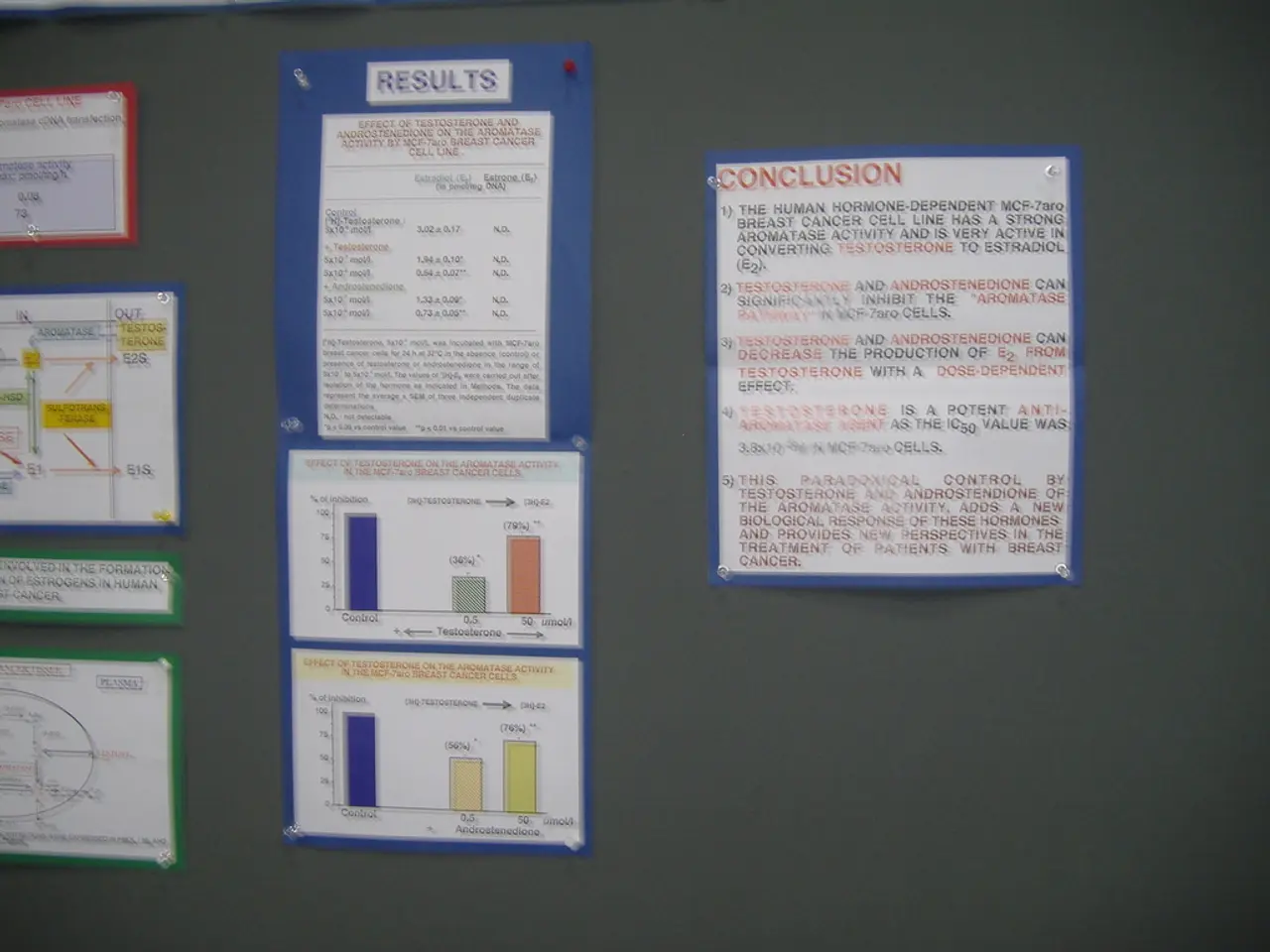Massive Financial Losses for Germans Over a Three-Year Period Total 79 Billion
In a challenging economic landscape characterised by low interest rates and rising inflation, German savers are at risk of experiencing a record loss of purchasing power this year.
According to Giovanni Gay, CEO of Union Investment, Germans are saving a lot but inefficiently. The combination of low interest rates and increasing inflation could result in a significant loss of purchasing power for savers who rely on traditional low-yield accounts.
A sample calculation shows that someone who invests 10,000 euros at an inflation rate of 2% and an interest rate of 0% could lose around 1,797 euros in purchasing power over ten years.
To combat this, savers are advised to invest more efficiently and profitably. Key strategies include:
- Using fixed-term accounts (Festgeldkonten) in Germany or via European platforms like WeltSparen, which offer higher, fixed interest rates by locking in deposits for a contract period. These are safer, predictable options that can outperform regular savings accounts in the low-interest environment in Germany.
- Considering short- to medium-term deposits or high-yield accounts and avoiding locking in long-term CDs when interest rates are expected to rise, allowing flexibility to capture better rates as they become available.
- Diversifying geographically and across asset types, such as equities, bonds, or mutual funds, rather than keeping all funds in cash or deposit accounts with nominal returns. This helps mitigate the erosion of purchasing power due to inflation.
- Utilizing tax allowances effectively, such as the saver’s lump sum (€1,000 per person or €2,000 per married couple) in Germany, and optimizing portfolios to offset losses against gains within asset classes to improve net returns after taxes.
- Regularly comparing available interest rates and terms, making use of online comparison platforms and reviewing conditions quarterly to ensure you benefit from the most competitive yields and avoid fees that reduce net returns.
Given the broader European context, low or even negative ECB deposit rates mean traditional savings accounts yield minimal returns. Seeking alternatives like diversified portfolio investments or European fixed deposits through stable foreign banks is prudent.
In 2020, German savers parked around two trillion euros in cash on checking or savings accounts, 229 billion euros more than the previous year. Yet, considering only the yield of interest products and excluding capital-forming insurance products, the capital increase in 2020 was a mere one percent.
The savings rate of Germans rose from 10.9% in 2019 to 16.2% in 2020. However, the proportion of earnings contributing to the increase in assets decreased by five percentage points to 19% in 2020 compared to 2019.
Investors show greater return orientation, with the share of equity investments in total assets increasing by 0.7 percentage points to 11.6% in 2020. The share of investment funds in total financial assets remained constant compared to the previous year at 10.5%.
Despite these trends, more than 40% of the total financial assets are still invested in less profitable assets. Cash and sight deposits make up almost a third (28.7%) of the money wealth in Germany.
The increase in inflation significantly impacts the yields for savers. In May 2021, the inflation rate in Germany rose by 0.5% to 2.5% and remained at a high level of 2.3% in June.
Savers whose investment is heavily dependent on interest rates could face a real loss of assets. People should not be punished for saving with a loss of purchasing power but rather rewarded with a real increase in assets, says Giovanni Gay.
Over the past few years, savers have lost around 79 billion euros in purchasing power between 2017 and 2020. It is crucial for German savers to shift from purely domestic low-yield savings accounts to a more diversified approach to protect their purchasing power in the current economic climate.
- To safeguard purchasing power amidst low interest rates and rising inflation, German savers should explore alternative investment options beyond traditional savings accounts, such as fixed-term accounts, short- to medium-term deposits, high-yield accounts, geographically diverse investments, and tax-optimized portfolios.
- Considering the European context and minimal returns from traditional savings accounts due to negative ECB deposit rates, savers may find it beneficial to explore alternatives like diversified portfolio investments or European fixed deposits through stable foreign banks.




